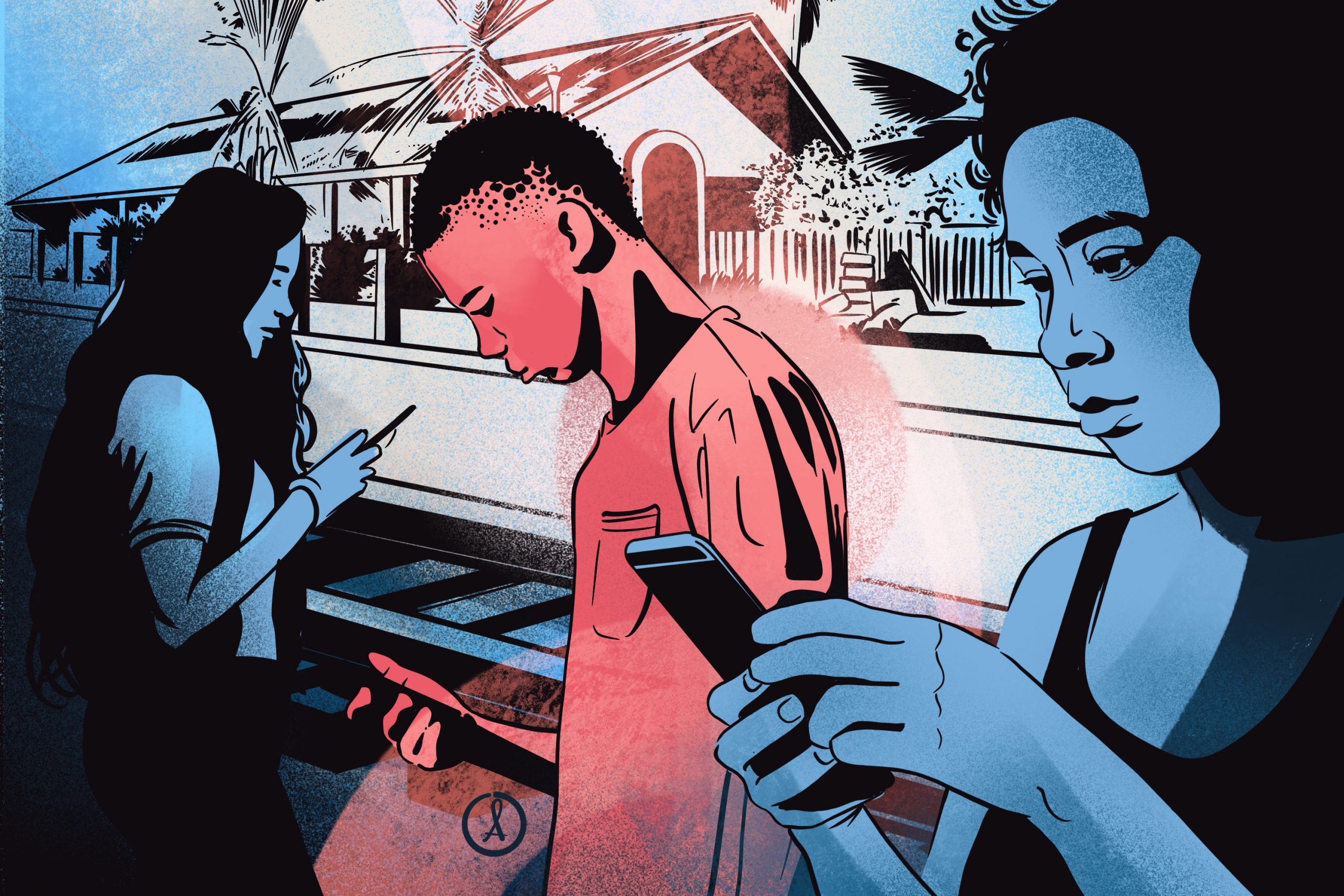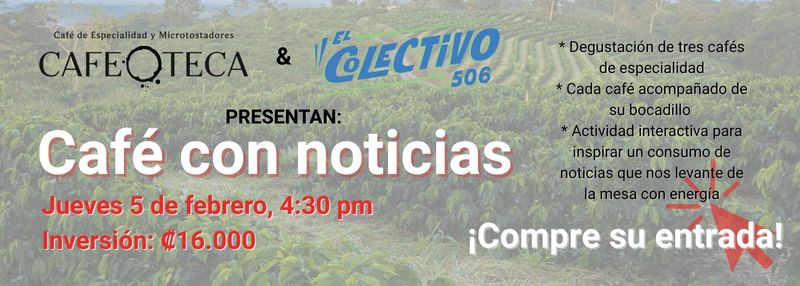Part four in our four-part series on misinformation in Costa Rica.
“I took civic education, and it was a joke,” says journalist Ernesto Núñez. “They’d show us a newspaper and say, ‘This is where you can get your information.’ Nothing about critical reading. And it’s still like that today.”
“When it comes to fact-checking and disinformation, the problem is that we show up when the sickness is already out there,” says Darío Chinchilla, co-founder of Doble Check. “Checking [fake news]… is useful from a historical perspective, so that there’s a registry of which were the best data… but the misinformation is already circulating. The best thing is to work on prevention.”
We’ve spent this month looking at how national and local media are working to combat misinformation and fake news in Costa Rica. We’ve interviewed the founders of verification efforts that research and call out erroneous reports, and local journalists working their contacts every day to correct rumors. But a common thread runs through every interview done for this issue: the need for increased digital literacy among the population.
Are all the best efforts of verification mechanisms and publications, or hard-working local media leaders scrabbling for sustainability, useless in the face of generalized inability to distinguish fact from fiction? What can be done to empower and inform the younger generations of Costa Rica?
Coaxing students to tell their stories
Radio Batalents, in Bataan de Limón, is not a verification initiative. It’s not even a journalism initiative, exactly. It’s a community radio that, surprising even its creators, has established a sort of open mic for teachers and young people in this Caribbean community and encouraged them to share their stories—and yes, occasionally correct misinformation.
Radio Batalents emerged in early 2020 from the music department of the Bataan Technical High School, or CTP. Bladimir Alvarado Alvarez, who teaches music at the school as well as at the Universidad Florencio del Castillo, says that a colleague suggested the creation of a radio station almost as a joke. However, the joke stuck, and after obtaining approval from the principal, transmission began on March 2, 2020.
“It exceeded our expectations,” he says. “We were really surprised because the school has about 1,500 students, and the day we launched, we had more than 1,500 visits” to a blog post about the radio project created by CTP Bataan English teacher Arturo Barrantes.
Just 11 days later, lessons were suspended because of the global pandemic, and Radio Batalents took on a whole new life. The digital radio became an essential source of communication between the school’s teachers and its students, stuck at home. Teachers began sharing information and even classes through the radio, earning nationwide recognition among educators.
“Those first months we transmitted the Health Ministry press conferences,” says Arturo. “The MEP [Public Education Ministry] made decisions and we communicated those.”
When it came to the fake news that spread like wildfire in Bataan and all over Costa Rica and the world, Arturo said that through Radio Batalents and the school’s Facebook page, he encouraged students to check the source.
“‘Who’s spreading the information? Does it appear in other media?’ To avoid news such as disinfectant for COVID, or the vaccine has a Bill Gates microchip. I try to curate what we share,” he says.
Through late nights editing student podcasts and early mornings preparing content before their teaching duties, Bladimir and Arturo say that they and their colleagues have worked to empower both their students and their fellow teachers when it comes to communications. They both agree that misinformation among students is an urgent problem (“WhatsApp is the worst in that sense,” says Arturo), and that the public education system should incorporate much more content and space for teaching students about critical thinking.
However, Arturo also points out that a radio for students and teachers doesn’t only correct misinformation within a community; it can also help correct false or limited perceptions on a national level about that community.
“There are lots of people who don’t know what Limón is, and we have to share that: that Limón isn’t terrible,” he says. “As a media effort, we have to communicate that part of the Caribbean that big media sometimes omit. We inform teachers and [student] collaborators about what a podcast is, what a blog is, so each one can learn about these tools and communicate.”
Their sound quality isn’t always great, with most collaborators recording on their phones, but Arturo says he treasures “the roosters you can hear in the background, the noise. We’re regional and we’re rural: we can’t take that out. We don’t have a real cabin. People are going to hear what we are… it’s not only what the big media organizations say, which is, ‘They killed someone in Limón.’”
‘Journalism so bad, it’s wakala’
Ernesto Núñez got his start in student radio, too. He came out of the gate at full speed. For this young journalist obsessed with finding new ways to correct bad information—“I finished my coverage of the 2018 presidential elections on the verge of a clinical depression,” he says—the key is making fact-checking fun.
When, as a 21-year-old student at the University of Costa Rica, he was offered the chance to take over a time slot at the university radio, “I analyzed what had been done before and decided to blow it all up,” he says. “We started a program focused on the reality of national and university life, for a young university audience. To reach that audience, we decided that we had to do journalism that’s so good, it’s laughable… journalism has to be enjoyable.”
The radio program, “La Doble Tracción,” would go on to become its own media organization bearing that same tagline (“periodismo tan buena que da risa”). Its “Los Guachis” project, featured in last week’s story at El Colectivo 506, takes local governments to task and calls on the citizens of municipalities to get involved.
Its fact-checking project follows Ernesto’s “blow it up” approach.
Why regional media are the front lines in Costa Rica’s fake news battle
“In this country there are lots of media doing fact-checking, but no one’s checking the media,” he says, so La doble tracción launched a project last year to do just that. Its name? The shit detector, or mierdetector, which not only calls out incorrect information or journalism practices, but invites readers to contact the authors directly to complain. One such call-out prompted more than 300 readers to descend upon a story’s author, Ernesto says.
The project caught the eye of the International Center for Journalists (ICFJ) and, with the support of that global organization, expanded its reach—and was rebranded with a slightly more demure name, the Wakalatector (“wakala” is slang for gross, nasty, terrible). Its Twitter account, however, still bears a smiling poop emoji.
Through the ICFJ, the project will launch misinformation trainings in October for community leaders in the municipalities where Los Guachis is active: Santo Domingo de Heredia, Montes de Oca, and Pérez Zeledón.
For Ernesto, while improving public civic education is absolutely essential for the future of Costa Rican democracy, time is just too short for journalism to sit on its hands. The fight against misleading and false information from media and local governments alike needs more hands and eyes. That’s why La Doble Tracción is hoping to build a more empowered citizenry, one community at a time.
“We’re going to turn them into wakalatectores,” he says.
The looming elections
Ernesto isn’t alone in feeling a sense of urgency, or even a sense of impending doom. Costa Rica’s divisive 2018 presidential election and the vast array of misinformation shared during the campaign were the spark for so many verification efforts here, including #NoComaCuento and Doble Check. It’s not surprising that fears about the 2022 election run like a drumbeat through the interviews for this edition.
Various interviewees describe how difficult, or even impossible, it can be to correct mid-campaign misinformation when trust hasn’t been built, and attention has not been paid, during the four years that come between elections.
“People keep voting because they’ve got this chip that says that part of being Costa Rican is going to vote,” says Vanessa Beltrán, who has spent years examining Costa Rica’s urban-rural divide at the UCR’s Research Center for Political Studies. “But when it comes to the meaning of ‘Why am I going? Why am I supporting this candidate and not another?’ there’s a feeling of disillusionment, of abandonment by the government.”
And when the government or political parties have stepped away from rural communities, “those chairs won’t stay empty,” she says. Entities like religious organizations will step in and provide basic services and yes, information. “The church organizes lunches for the kids, picks up garbage where the garbage truck didn’t come.”
The first step to improving this? “Give them the microphone. Put a spotlight on how people are living,” she says. “Drug trafficking is not experienced the same way in Desamparados as it is in Jacó.” The key is to see these differences “without creating a hierarchy… we have to think from and not about communities. Not go in there with my researcher’s magnifying glass or my journalist’s recorder to study what those ‘pobrecitos’ de Upala feel, but rather to be a channel for communication, a mediator between what people from the communities are saying.”
Again and again, conversations about possible solutions to Costa Rica’s growing gaps of understanding and information end up in the realm of local media.
“I’m so worried about the upcoming campaign and what could happen with misinformation,” says Kattia Bermudes, the La Nación journalist who helped create Punto y Aparte’s national directory of local and regional media. “That’s why it’s important to strengthen those [regional] media beforehand.”
Remember Sofía Chinchilla, running La Nación’s #NoComaCuento from her kitchen table in Cartago? While international funding for that effort’s regional media initiative ended earlier this year, she says she’s among the many hoping that regional media will be a firewall against misinformation in the coming months.
“I think it’s so important that regional journalists are attentive to misinformation that could be circulating,” she says.
The regional journalists agree. And for Marcela Delgado, at least, it’s very clear from where she sits that local media wield unique power to combat misinformation. The source of that power? The same thing that has allowed her to find a personal balance: moving home to narrow, and deepen, her influence and scope.
“The first year, you’re not going to earn anything and you’ll probably die of hunger,” she says, describing the advice she gives to new local media founders who seek out five-year-old San Carlos Digital for advice. “But then you’ll say, ‘I’m still here.’ That’s really important. Why? Because when you have kids, you start to understand that the lifestyle [of a city journalist] isn’t going to function. Work or my family: what do I do? In these [local] projects, you find equilibrium. You’re in your hometown. You usually work from home. I’m home right now: my daughter just came in and gave me a plate of food.
“This proliferation of small, hyperlocal media is what this country needs, because it’s neighbors informing neighbors,” she explains, before comparing herself to the country’s best-known national news anchor. “What’s easier: trusting Marcela who you already know, who’s here in her house in shorts and sandals? Or trusting Ignacio Santos in San José?”
During this month of September, we turned our attention at El Colectivo 506 to the health of our democracy, and how disinformation and fake news is causing new symptoms in our society. Join us for “Infodemic,” a month behind the scenes of Costa Rican news. View the complete edition here. We are pleased to be partnering with artist and graphic designer Allan Fonseca, who is creating the illustrations for “Infodemic,” including this week’s illustration of #NoComaCuento’s Sofia Chinchilla. Learn more about Allan here.





